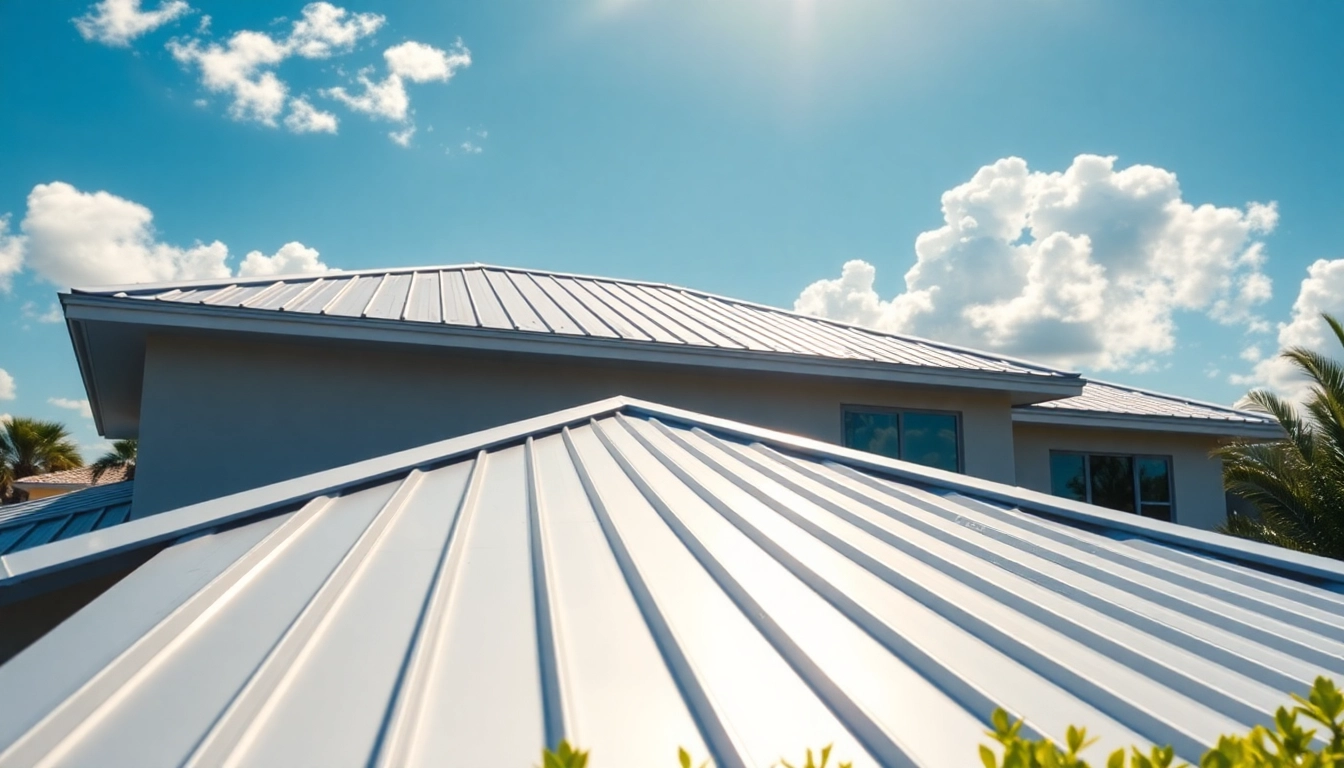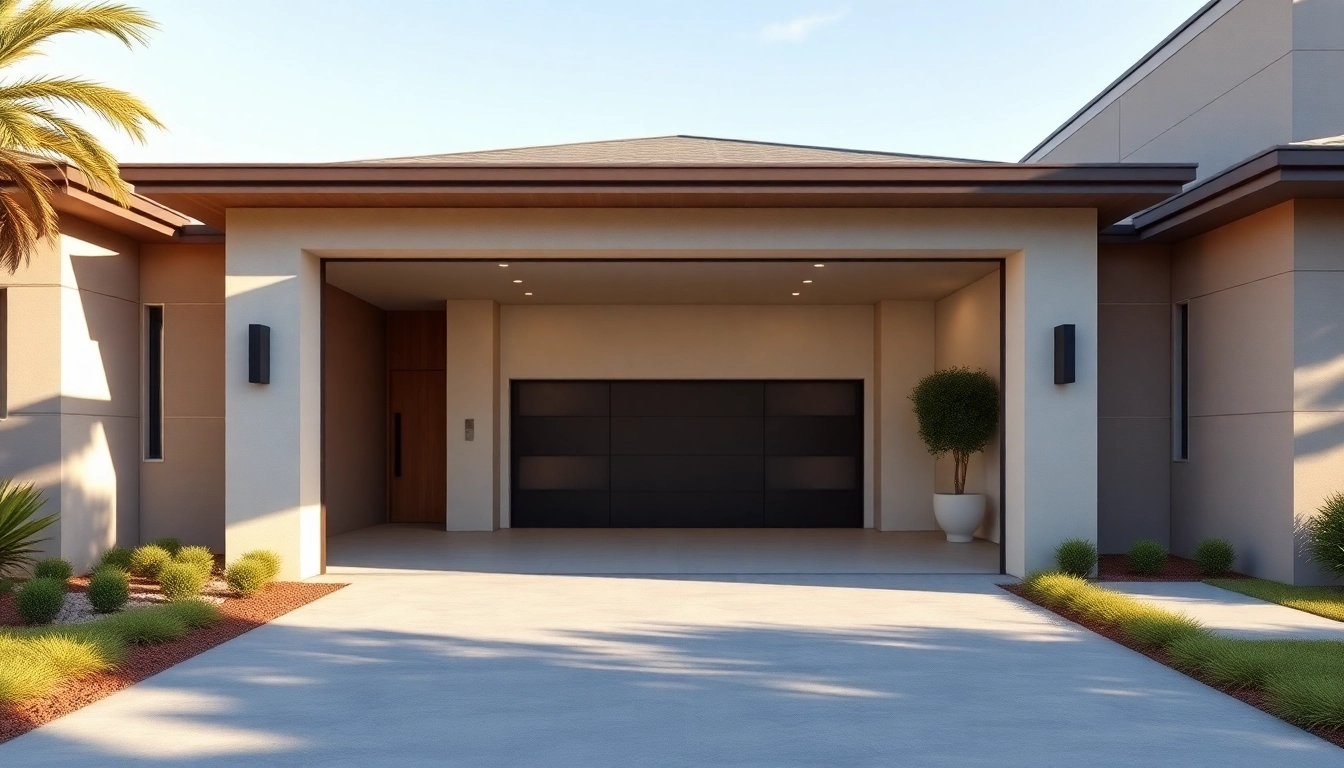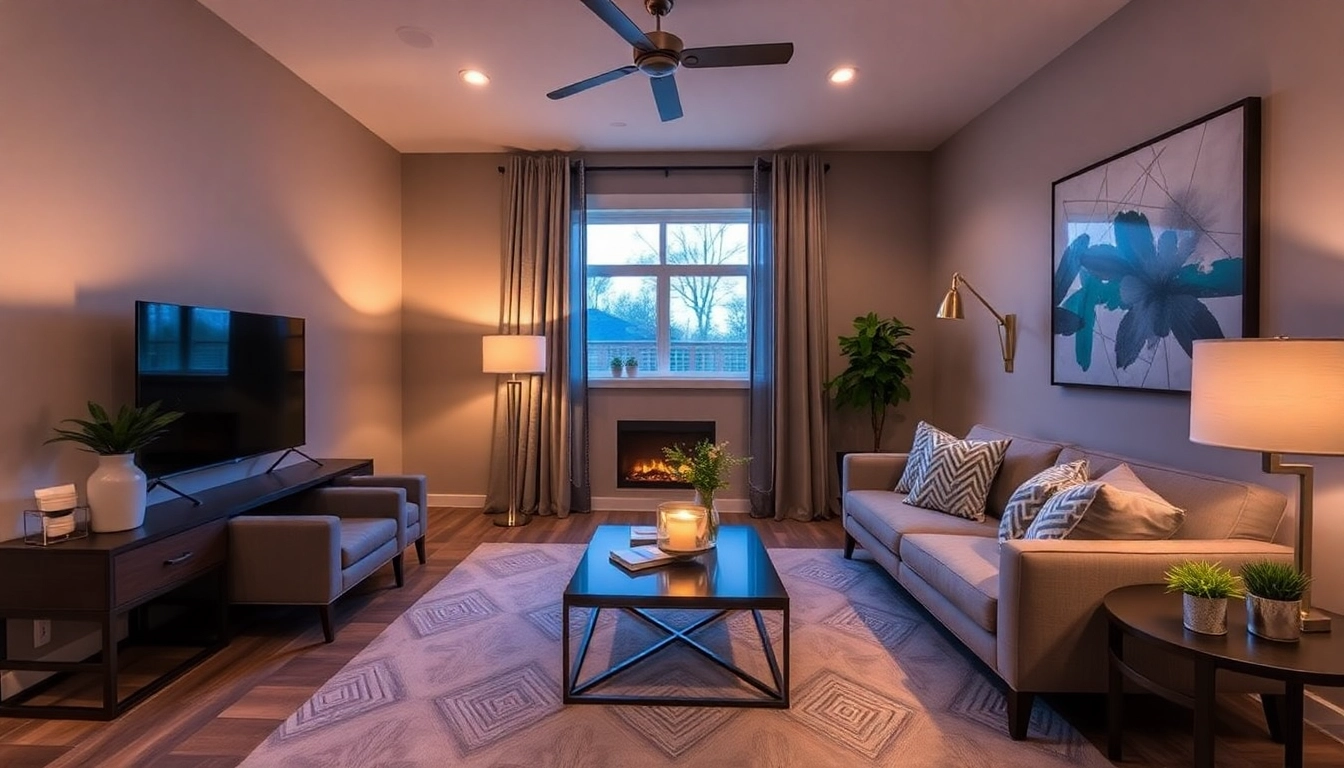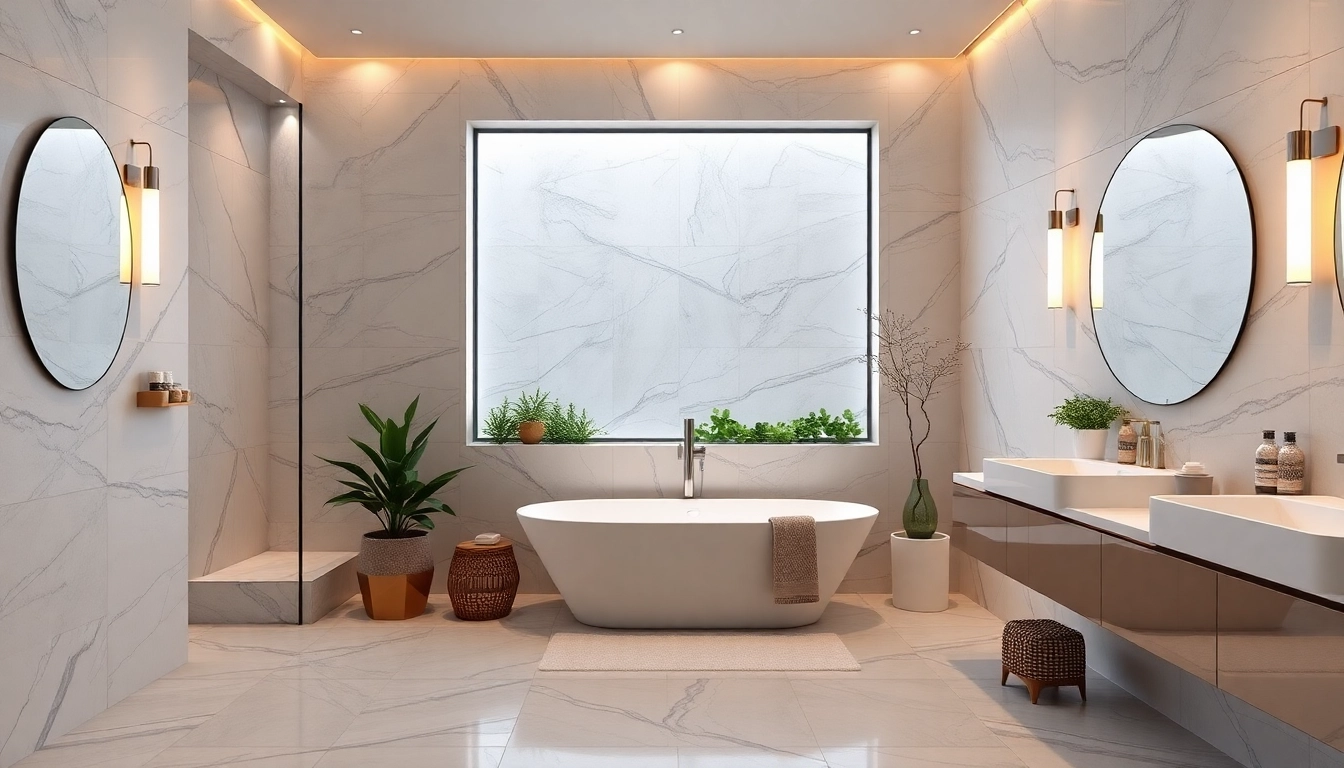Understanding Florida Metal Roofing Options
As homeowners and builders seek to elevate their properties, the appeal of metal roofing has surged nationwide, especially in Florida where the climate presents unique challenges. Florida metal roofing encompasses a variety of styles and materials engineered to withstand harsh weather, making it a prime choice for many. In this comprehensive guide, we’ll explore the various types of metal roofing materials, compare costs with traditional roofs, and understand the durability and weather resistance that metal roofing provides.
Types of Metal Roofing Materials Available
Metal roofing is not a one-size-fits-all solution. The following materials are commonly used in Florida:
- Steel: Galvanized steel is the most common type of metal roofing material. It offers durability and strength, with various coatings available to prevent rust and other weather-related issues.
- Aluminum: Known for its rust-resistant properties, aluminum roofing is particularly advantageous in coastal areas of Florida. It’s lightweight and can be easily shaped, making it perfect for custom designs.
- Copper: Although more expensive, copper roofing provides a unique aesthetic and exceptional longevity. It develops a patina over time that not only enhances its beauty but also protects it from corrosion.
- Zinc: Similar to copper, zinc roofing is low-maintenance and offers a long lifespan. It naturally develops a protective layer that enhances its durability.
- Standing Seam: This style features vertical panels with hidden fasteners, providing a sleek look. It’s highly durable and is effective at channeling water off the roof.
Comparing Costs: Metal vs. Traditional Roofing
When evaluating the overall cost of roofing options, it is crucial to consider not just the initial investment but the long-term savings in maintenance and energy costs. Traditional roofing materials such as asphalt shingles may initially be cheaper, typically ranging from $100 to $150 per square, but they have a shorter lifespan (15–20 years) and less durability compared to metal roofing.
In comparison, installing metal roofing can range from $300 to $900 per square, depending on the material and style chosen. However, metal roofs can last 40 years or more with proper maintenance. The initial higher costs often pay off in reduced maintenance and energy savings, particularly when considering that metal roofing reflects solar heat, leading to lower cooling costs during Florida’s sweltering summers.
Weather Resistance and Durability Benefits
Florida’s climate can be harsh, with heavy rains, strong winds, and high humidity. Metal roofing is engineered to handle these elements more effectively than many traditional materials:
- Wind Resistance: Many metal roofing systems are rated to withstand winds of up to 140 mph, making them suitable for hurricane-prone areas.
- Water Shedding: The sloped design of metal roofs allows for efficient water drainage, preventing pooling and subsequent roof damage.
- Fire Resistance: Metal roofing is non-combustible, providing an added layer of protection against wildfires and lightning strikes.
- Insect Resistance: Unlike wood shakes or shingles, metal roofs are impervious to insects and termites.
Key Advantages of Choosing Metal Roofing in Florida
Energy Efficiency and Cost Savings
One of the standout advantages of Florida metal roofing is its energy efficiency. Metal roofs reflect solar radiant heat rather than absorbing it, which can translate to energy savings of 10 to 25% on cooling costs. Additionally, many metal roofs are coated with reflective materials compliant with Energy Star® requirements, further enhancing their ability to reduce energy consumption.
Longevity and Maintenance Requirements
Metal roofs are designed with longevity in mind, often lasting 40 to 70 years. This extensive lifespan significantly outpaces that of traditional roofing materials. Moreover, they require minimal maintenance compared to alternatives. Regular inspections to check for any rust spots or loose screws can keep a metal roof in excellent condition for decades. In comparison, traditional roofs often require frequent repairs and replacements, generating ongoing costs for homeowners.
Aesthetic Appeal and Design Versatility
Beyond practicality, metal roofing offers a variety of aesthetic options for homeowners. From standing seam and corrugated panels to metal tiles mimicking traditional roofing materials, there’s a style to match every architectural design. Metal roofing can also be painted in various colors, allowing homeowners to personalize their home’s appearance while adhering to homeowners’ association guidelines or architectural standards.
Installation Considerations for Florida Metal Roofing
Selecting Qualified Contractors for Installation
Choosing the right contractor is pivotal for ensuring a successful installation. It’s essential to work with professionals who are experienced in metal roofing and familiar with Florida’s specific building codes. Homeowners should seek out contractors who have demonstrated expertise in metal roof installations and ask for references or examples of past work. Certifications from manufacturers can also indicate a contractor’s ability to properly install their roofing system.
Understanding Local Building Codes and Compliance
Before starting any roofing project, it’s crucial to be aware of local building codes. Florida has stringent requirements for roofing materials to ensure safety and longevity, particularly in hurricane-prone areas. Homeowners must consider the 25% roofing rule, which stipulates that any roof repairs or replacements over a certain percentage of the roof area must comply with current code standards. Understanding these regulations helps prevent future legal complications and safety issues.
Preparation Steps Before Installation Begins
Prior to installation, homeowners should prepare their properties to streamline the process. This includes:
- Removing old roofing materials and debris from the site.
- Ensuring that the underlying structure is sound and level, addressing any water damage or rotting.
- Planning for material delivery and storage to keep them protected until they’re ready to be installed.
Challenges and Common Misconceptions
Addressing Noise Concerns During Rainstorms
A common misconception about metal roofs is that they are excessively noisy during rainstorms. While it’s true that metal can amplify sound, proper insulation and installation techniques can significantly reduce noise levels. Many homeowners report that with adequate insulation, the sound of rain is minimal, comparable to other roofing types.
Metal Corrosion: Myths vs. Reality
Another myth surrounding metal roofing is the concern over corrosion. While it’s true that certain metals can rust, most Florida metal roofing systems are made of galvanized steel or aluminum, both of which resist corrosion when appropriately maintained. Coatings and paints applied to metal roofing further enhance their protective qualities, ensuring homeowners can enjoy their roofs for years without significant deterioration.
Heat Reflection vs. Absorption in Metal Roofing
It’s crucial to understand how metal roofs interact with heat. Contrary to the belief that metal is a poor insulator, it actually provides good thermal performance due to its reflective properties. When combined with reflective coatings, metal roofs reduce heat absorption, keeping homes cooler and more comfortable even in the scorching Florida heat.
Finding the Right Supplier for Your Metal Roofing Needs
Evaluating Product Quality and Warranty Options
Selecting a reputable supplier is fundamental for ensuring you receive high-quality materials. Homeowners should look for suppliers that offer warranties on both products and installations, as this demonstrates their confidence in the longevity and durability of their products. It’s recommended to review warranty details carefully, focusing on coverage periods and the specific circumstances that could void the warranty.
Customer Reviews: What to Look For
When evaluating suppliers, customer reviews can provide invaluable insights. Look for feedback on product quality, customer service, and the installation process. Trustworthy suppliers will have a track record of satisfied customers who can attest to their products’ performance and durability under Florida’s challenging conditions.
Support and Resources Provided by Suppliers
In addition to quality materials, it’s essential to choose suppliers who offer resources and support during the purchasing and installation process. This can include educational materials, installation guides, and customer service representatives who can answer any queries or concerns. A supplier’s willingness to provide support post-purchase can make a significant difference in the overall experience for homeowners.



